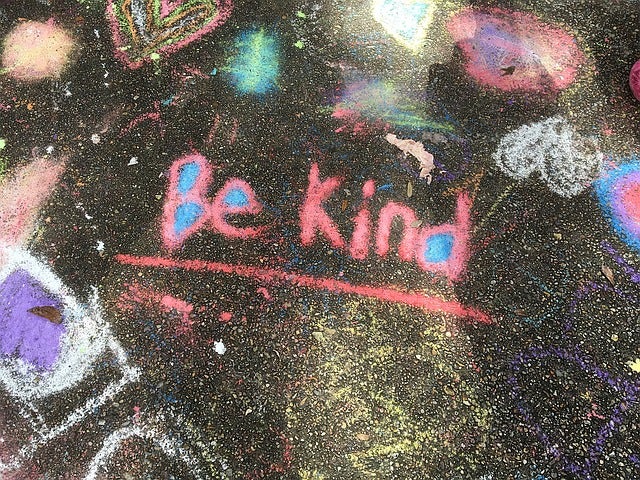
A recent study at the University of Iowa invited students to practice loving kindness for twelve minutes. Students were told to walk around a campus building and wish that anyone they encounter be happy and really mean it.
The students who practiced this brief loving-kindness activity reported lower anxiety, greater happiness, empathy and interconnectedness than control subjects. Moreover, these positive effects occurred regardless of such traits as overall stress, narcissism, and general contentment.
We often imagine that pursuing our own happiness is what will make us the most happy. There is some truth in that. If we ignore what makes us happy or have never figured this out, this can lead us to neglect our own well-being and mechanically pursue relationships and activities that leave us feeling dispirited and finding little joy in our lives.
On the other hand, pursuing our own happiness without regard to the well-being of others can lead to feeling isolated and disconnected from others. We may start to see the pursuit of happiness as a zero sum game in which there are winners and losers, and the needs of others are seen as potential obstacles.
Consider the following incident that is seared into my memory.
During graduate school, to help pay the bills, I painted buildings one summer. A coworker was climbing a ladder when the ladder collapsed underneath him, entangling him within its metal rungs. We quickly gathered round to see if he was okay and offer assistance. Meanwhile, a woman rushed out of an adjacent office — I presumed, to offer aid. However, instead of offering assistance, she started to examine the grill and bumper of a nearby car. Finally, she turned to us with a pinched face and said something like, “If you’ve damaged my car, you will pay for it.”
This woman, who I did know but who worked in the building that we were painting, seemed to identify her happiness with the status of her car. It is hard to fathom the mental states of people we don’t know well, but I find it hard imagine that she was living a truly happy or fulfilled life. If I had been more enlightened, perhaps I would gone up to her and said, “I’m so sorry. I see that you are suffering because of the possible damage to your car.” Then I would have directed loving kindness toward her (rather than looking down at her as an example of warped materialism run amok!).
Contrast that with the following story that I read in a magazine a number of years ago.
The author was driving across the Bay Bridge in San Francisco. It was the holiday season, and as he pulled up to the toll booth he decided as a gesture of good will to pay both for himself and the car behind him. As he held out his bills and change, the attendant waved his hand away. “You’re good to go. The driver ahead of you just paid for you too.”
Do you not get a tingly feeling when you hear this story? There are moments like this when a doorway opens in everyday reality and we are catapulted into another realm. In such moments the universe seems to say, “The world is not what you think it is. It is much sweeter and more magical.”
At such times, we realize that we are not in this alone. That we are all connected somehow. And the Darwinian struggle for reward and survival, at least in this timeless moment, is not the ultimate reality.
So if you want to be happy, consider practicing kindness. When you are thinking of others’ happiness, you are not worrying about the status of your grades, your bank account, or your dating life. This can be very freeing for those of us (myself included) who get caught up in worrying about acquiring or having enough. It is also a way of stepping out of the jail cell of self-absorbed thoughts.
If you try this, you will feel more connected to others — like you are a part of it all and there is no “us vs. them.” This can be a powerful antidote to feelings of isolation that many people feel, particularly those who are depressed.
You may start to notice, without really striving for it, that the world is kind to you back.
Mark Evans, Ph.D.
Senior Staff Psychologist
